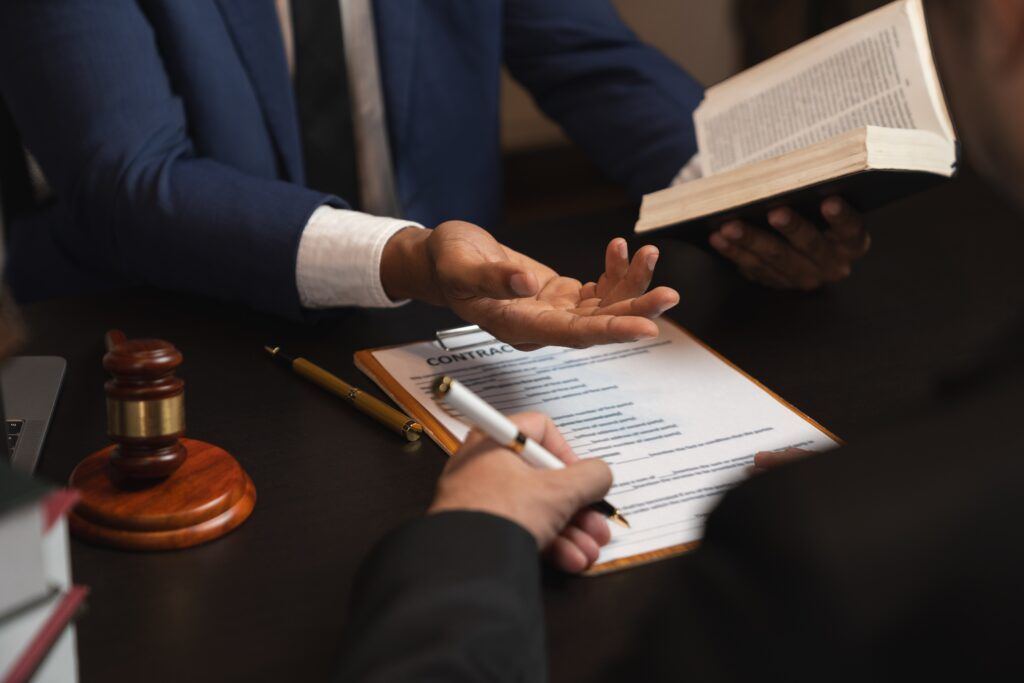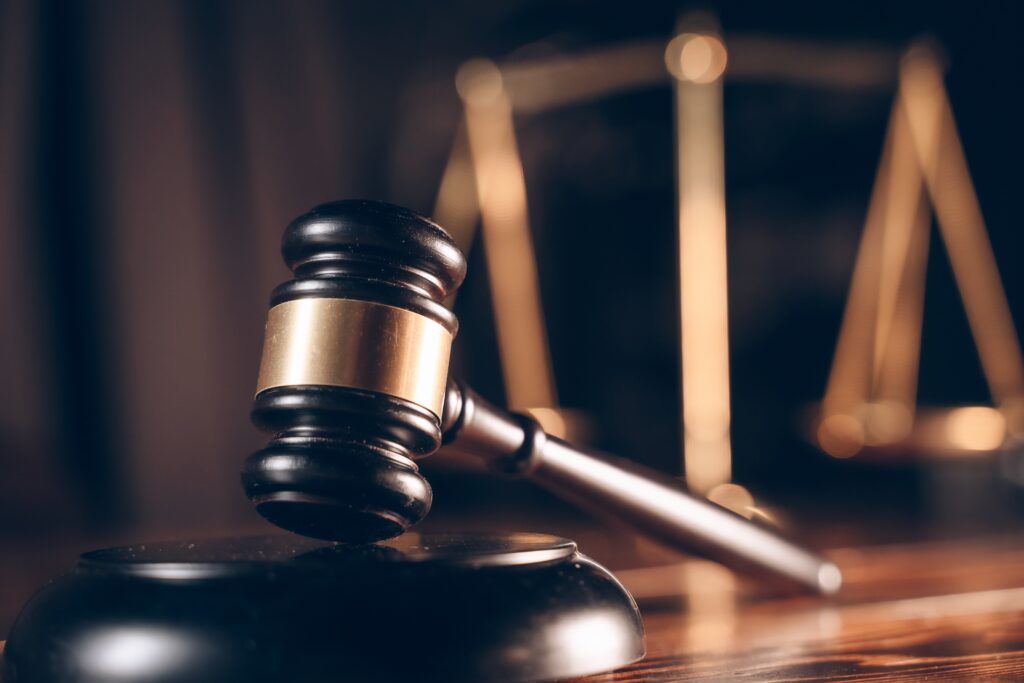An individual may be charged with violating their federal probation if they fail to report to their probation officer, fail to undergo drug testing, or violate some other probation condition. If you are currently facing a charge of a federal probation violation, it’s essential that you consult with a skilled federal criminal defense lawyer right away. Your lawyer can review the charge with you and determine your legal options for moving forward. Your lawyer can also represent you during all legal proceedings and work to obtain the best possible result in your probation violation case.
Obtaining Probation for a Federal Charge
Obtaining probation for a federal criminal charge involves several steps and considerations. While it is ultimately up to the judge to decide whether probation is appropriate, there are key factors and processes that can influence this decision.

- Legal Representation – The first step in seeking probation is to hire a skilled criminal defense attorney experienced in federal cases. A good lawyer will understand the intricacies of federal law and can craft a strong argument for why probation is a suitable option in your case.
- Plea Bargaining – Often, an accused individual (the defendant) may consider entering a plea bargain. This is an agreement between the defendant and the prosecutor, where the defendant pleads guilty to a lesser charge or to one of the charges in exchange for a more lenient sentence. During plea deal negotiations, the defense attorney can advocate for probation as part of the deal.
- Presentencing Investigation Report (PSR) – After a guilty plea or a conviction, a probation officer will prepare a Pre Sentencing Investigation Report. This report includes details about the defendant’s background, criminal history, and the circumstances of the offense. The report is crucial as it helps the judge understand the defendant’s personal and criminal history, which can influence the sentencing decision. The defendant should cooperate fully during this investigation to present themselves in the best possible light.
- Character Witnesses and Support Letters – The defendant can gather support letters from family, friends, employers, and community leaders. These letters should highlight the defendant’s good character, contributions to the community, and potential for rehabilitation. Positive testimonies from character witnesses can significantly affect the judge’s decision.
- Mitigating Factors – The defense should highlight any mitigating factors that may justify a more lenient sentence. These can include the defendant’s lack of prior criminal record, minor role in the alleged crime, or circumstances that led to the offense. Demonstrating genuine remorse and taking responsibility for the offense can also be beneficial.
- Rehabilitation Efforts – Showing evidence of rehabilitation efforts can strengthen the case for probation. This may involve participation in counseling, substance abuse treatment, or other programs aimed at addressing the underlying issues that contributed to the alleged criminal behavior.
- Sentencing Hearing – During the federal sentencing hearing, the defense attorney will present arguments and evidence supporting the request for probation. The defendant may also have an opportunity to speak, expressing remorse and commitment to changing their behavior. The prosecution will also present their arguments, and the judge will consider all factors before making a decision.
By following these steps and working closely with a skilled criminal defense attorney, a defendant can improve their chances of receiving probation for a federal criminal charge.
What are the Possible Terms of a Federal Probation?
Federal probation is a form of supervision that a court orders as an alternative to imprisonment. It allows individuals convicted of federal crimes to serve their sentence in the community under certain conditions instead of in prison. The terms of federal probation can vary widely based on the nature of the offense and the individual’s history, but there are several common conditions that many people on probation must follow.
- Regular Reporting – Individuals on probation are typically required to report to a probation officer regularly. This can be done in person, by phone, or sometimes online. The frequency of these reports depends on the specifics of the case and the probation officer’s requirements.
- Employment or Education – Probationers are often required to maintain steady employment or be enrolled in an educational program. This condition helps ensure that the individual is productively occupied and less likely to engage in criminal activity.
- Drug Testing and Treatment – Many individuals who are on probation must undergo regular drug testing to ensure that they are not using illegal substances. If drug abuse was related to the crime, the court may also require participation in a drug or alcohol treatment program.
- Travel Restrictions – There are usually restrictions on travel for those on probation. They often need permission from their probation officer to leave the jurisdiction, which can range from a city or state to the entire country.
- Community Service – Some probation terms include a requirement to perform a certain number of hours of community service. This helps the individual give back to the community and can be a constructive way to occupy their time.
- Curfew – A probationer may be required to adhere to a curfew, meaning they must be at home during specified hours, usually at night. This reduces the opportunity for criminal activity and helps the probation officer monitor their behavior.
- No Contact Orders – If the crime involved a specific victim or group, the court may order the individual to have no contact with them. This helps protect the victims and prevents further offenses.
- Payment of Fines and Restitution – Probation may also include paying fines or restitution. This is meant to compensate for any financial losses resulting from the alleged offense.
Failing to comply with these conditions can result in penalties, including revocation of probation and serving the original prison sentence. Federal probation aims to rehabilitate the individual while ensuring public safety and encouraging lawful behavior.
What are Some Ways that Individuals May Violate a Federal Probation?
Individuals on federal probation must follow strict conditions that the court establishes. Violating one or more of these conditions can lead to serious consequences. Here are some common ways that individuals may violate federal probation and the potential consequences of these violations.
Common Ways of Violating Federal Probation:

- Failing to Report to the Probation Officer – Probationers are required to regularly check in with their probation officer. Missing these appointments without a valid reason is a violation.
- Committing New Crimes – Engaging in new criminal activity, whether it’s a minor offense or a serious crime, is a direct violation of probation terms.
- Drug or Alcohol Use – Many individuals on probation are prohibited from using drugs or alcohol. Failing a drug test or being caught under the influence can lead to a violation.
- Traveling Without Permission – Probation often includes travel restrictions. Leaving the designated area without prior approval from the probation officer is a violation.
- Failing to Maintain Employment or Attend School – If the probation terms include maintaining a job or attending school, not doing so without a valid reason can be a violation.
- Not Completing Required Community Service Hours – If community service is part of the probation terms, failing to complete the required hours as scheduled is a violation.
- Associating with Known Criminals – Probation conditions often prohibit individuals from associating with individuals who have criminal records. Violating this condition can lead to trouble.
- Possession of Firearms or Illegal Weapons – Many probation terms prohibit individuals from possessing firearms or other illegal weapons. Being found with these items is a serious violation.
Consequences of Violating Federal Probation
When an individual violates their probation, the probation officer will report the violation to the court. The consequences can vary depending on the severity and nature of the violation:
- Warning or Increased Supervision – For minor violations, the court may issue a warning or increase the level of supervision, such as requiring more frequent check-ins.
- Modification of Conditions – The court may also change the probation terms, adding more stringent conditions like curfews or mandatory treatment programs.
- Extension of Probation – The probation period may also be extended, requiring the individual to remain under supervision for a longer time.
- Revocation of Probation – For serious or repeated violations, the court may revoke probation entirely. This means the individual would have to serve the remainder of their sentence in prison.
How Can a Lawyer Help with a Probation Violation Case?
If you violate federal probation, a lawyer can be an invaluable ally in navigating the legal consequences. Here are some ways a lawyer can help in such a situation:
- Assessing the Violation – The first step a lawyer takes is to assess the nature of the alleged probation violation. Violations can range from minor, like missing a meeting with a probation officer, to major, such as committing a new crime. A lawyer will review the details of the violation and determine its severity, which will help in formulating a defense strategy.
- Advising on Legal Rights – A lawyer will inform you of your legal rights and what to expect during the probation violation process. This includes understanding the potential penalties and the steps the court may take. Knowing your rights is crucial to ensure fair treatment throughout the legal proceedings.
- Representing in Court – When facing a probation violation hearing, having a lawyer represent you in court is essential. The lawyer will present your case to the judge, aiming to explain the circumstances that led to the violation. They can provide evidence or call witnesses to support your case, which can help to lessen the potential consequences.
- Negotiating with Probation Officers and Prosecutors – Lawyers often negotiate with probation officers and prosecutors to reach a favorable outcome. They may argue for reduced penalties or alternative measures, such as increased supervision instead of revocation of probation. Their goal is to find a solution that avoids harsher consequences like imprisonment.
- Developing a Defense Strategy – A lawyer will develop a defense strategy tailored to your specific situation. This may involve challenging the evidence against you or showing that the violation was unintentional or resulted from circumstances beyond your control. They can also highlight your compliance with other probation conditions and any positive steps you have taken, such as seeking treatment or employment.
- Mitigating Penalties – Even if the violation is proven, a criminal defense lawyer can work to lessen your penalties. They may argue for leniency based on your overall behavior during probation, personal circumstances, or efforts at rehabilitation. The lawyer’s advocacy can make a significant difference in the judge’s decision, potentially leading to less severe consequences.
- Providing Emotional Support and Guidance – Going through a probation violation process can be stressful and overwhelming. A lawyer not only provides legal assistance but also offers emotional support and guidance. They help you understand the process, prepare for court appearances, and navigate the complexities of the legal system.
Taking a Federal Probation Violation Case to Trial
Taking a federal probation violation case to trial is a serious process that involves several steps and can have significant consequences. Here’s an overview of what this process entails:

- Fully Understanding the Alleged Violation – Before deciding to take a probation violation case to trial, it’s important to understand the nature of the alleged violation. Probation violations can be technical, such as missing a meeting with a probation officer, or substantive, such as committing a new crime. Understanding the specifics of the alleged violation is crucial in determining how to proceed.
- Preparing for Trial – Preparation is key to any trial. Your lawyer will collect evidence, interview witnesses, and possibly gather expert testimony to build your defense. They will also review the prosecution’s evidence against you to identify any weaknesses or inconsistencies.
- The Hearing – In a probation violation case, the trial is called a revocation hearing. Unlike a regular criminal trial, the burden of proof is lower; the prosecution only needs to prove the violation by a preponderance of the evidence, meaning it is more likely than not that the violation occurred.
- Presenting the Case – During the revocation hearing, both the prosecution and defense will present their cases. The prosecution will present evidence of the violation, while your lawyer will challenge this evidence and present any counter-evidence or arguments. Your lawyer may argue that the violation was unintentional or that there were mitigating circumstances.
- The Judge’s Decision – After hearing both sides, the judge will decide whether a violation occurred. If the judge finds that a violation did occur, they will then decide on the appropriate consequences. These can range from modifying the terms of probation to revoking probation and imposing a prison sentence.
- Consequences – If probation is revoked, the consequences can be severe, including serving the remainder of your sentence in prison. However, if your lawyer successfully defends your case, the judge may impose less severe penalties or even dismiss the violation.
Taking a federal probation violation case to trial is an extremely serious matter. With the help of the best criminal defense attorney, you can navigate this process and work towards the best possible outcome.
Speak with a Knowledgeable Criminal Defense Attorney Today
Probation violations at the federal level are extremely serious. If you are charged with violating your probation, it’s important that you talk with a skilled criminal defense attorney who handles federal cases right away. Your lawyer can determine your legal options, represent you during various legal proceedings, and help you pursue the best possible result.


